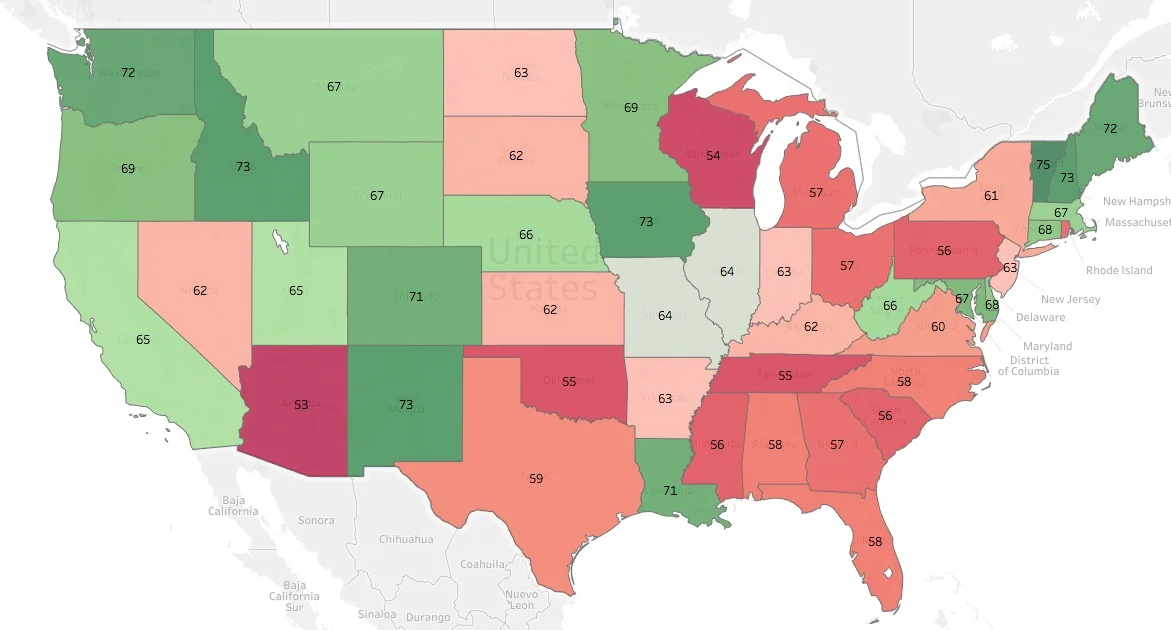In 2019, Mexico passed a constitutional reform that introduced the recall referendum, a mechanism to regulate whether the president’s term will conclude prematurely. The referendum is organized by Mexico’s National Electoral Institute (INE) and requires a validity threshold of 40% of registered voters. If this is met, the president is overthrown, provided that a majority votes for this. This exercise was held on 10 April 2022 with a small turnout of 17.77% of voters. Out of these, 91.8% voted for not recalling the president.
According to Mexico’s Constitution and Electoral Law, the recall referendum must be implemented in such a way that: citizens have a leading role in the process; that the playing field is levelled; and that there is no manipulation from the government. To ensure this, the referendum must be requested by citizens (at least 3% of those registered on the voter’s list), the use of public resources is prohibited, and all government propaganda is banned. Finally, INE and local election bodies are the only institutions authorized to promote the referendum.
In theory, this recall referendum should have been a citizen guided process, where voters decide autonomously whether the president keeps their job based on an evaluation of their performance. In practice, however, this first exercise played out quite differently, encountering serious election malpractice - Mexico’s Electoral Tribunal received a total of 6,939 legal challenges. For reviewing these we at the Electoral Tribunal applied a new legal approach we have been developing, consisting of judging with an ‘electoral integrity perspective’. The following is a sample of the irregularities found and the approach adopted by the Tribunal.
First, while the recall referendum was introduced in the Constitution in December 2019, its regulating law was not published until September 2021, 15 months after the deadline and when the process had already begun. In this regard, the Electoral Tribunal ruled that there was a “legislative omission” which violated citizen’s rights to participate. It was necessary to issue a specific law regulating the referendum and Congress was ordered to legislate. Furthermore, the published law was incomplete, which delayed the implementation of the process - an example being that the new law did not include relevant dispute resolution mechanisms[8].
Second, the budget to hold the referendum was insufficient. For 2022, INE requested budget to set up 162,570 polling stations, the same number of stations as a presidential election. However, Congress decided not to grant this budget and therefore INE could only set up about a third of stations (57,436). The Electoral Tribunal ruled that, despite this situation, the INE had to carry out the process to guarantee this direct democracy mechanism and with it, citizen’s rights.
Third, the process for collection of signatures needed to trigger the referendum was also problematic. Citizens flagged that they appeared on the petition to call the referendum without expressing their consent, and furthermore an NGO which promoted the recall referendum provided 14,490 formats with irregular information, pertaining to deceased citizens. In all these cases the Electoral Tribunal confirmed sanctions to individuals and organizations who presented false information.
Finally, this process was characterized by inequality, as the government and its party heavily promoted the referendum so the president would be ratified. The Electoral Tribunal identified that public officials disseminated propaganda when they were not allowed to do so by the Constitution. One case highlighted that 17 governors from the ruling party issued an unauthorized public statement supporting the president. Moreover, the president himself (also barred from participating, as the process was related to his own mandate) promoted his government’s achievements during public events.
As the recall referendum did not reach the required 40% turnout threshold, the Electoral Tribunal ruled it did not have any legal effects. All claims made were therefore not viable. However, the Tribunal stated that not meeting the threshold did not mean that certain irregularities should not be investigated, and if proven, punished. Therefore, the Tribunal provided different institutions files to investigate all irregularities and, where appropriate, sanction any illicit behavior. Claims ranged from accusations of party officials acting as polling officers, to people voting without a voter ID.
Mexico’s recall referendum brought a few key lessons. An electoral integrity perspective is usually applied only to traditional representative democracy elections – ranging from national level presidential contests to local municipal elections. However, as this novel exercise has shown us, we need to ensure that direct democracy processes are just as free and fair as other elections.
The malpractices encountered, from an inadequate legal framework, insufficient budget, irregularities in the collection of signatures to a lack of a playing field, show that direct democracy faces serious challenges in Mexico. Direct democracy should work as a tool for citizens to express their concerns, shape public policy and demand accountability. However, when not properly designed or implemented, these exercises can precisely prevent this goal.
Without electoral integrity, direct democracy exercises will not be able to achieve their full potential as a voice for citizens. This is why it is important to include this perspective when judging on electoral affairs, and this is what we did at the Tribunal. For us, the formula is simple: for any irregularity, the law should be applied; for any abuse or malpractice, political rights should be guaranteed.
Reyes Rodríguez Mondragón has held positions in all three branches of the Mexican government, as well as in autonomous bodies. He has been a magistrate within the Electoral Tribunal of the Federal Judiciary (TEPJF), both in the Regional Court in Monterrey and in the Superior Court. He was appointed as the Magistrate President of the TEPJF from 2021-2023.
Reyes holds a bachelor's degree in law from the Autonomous Technological Institute of Mexico (ITAM) and pursued postgraduate studies at the Center for Research and Teaching in Economics (CIDE) and the International Institute for the Sociology of Law in Oñati, Spain. He is the author of various articles and academic publications, and has served as the director of the law program at CIDE.








